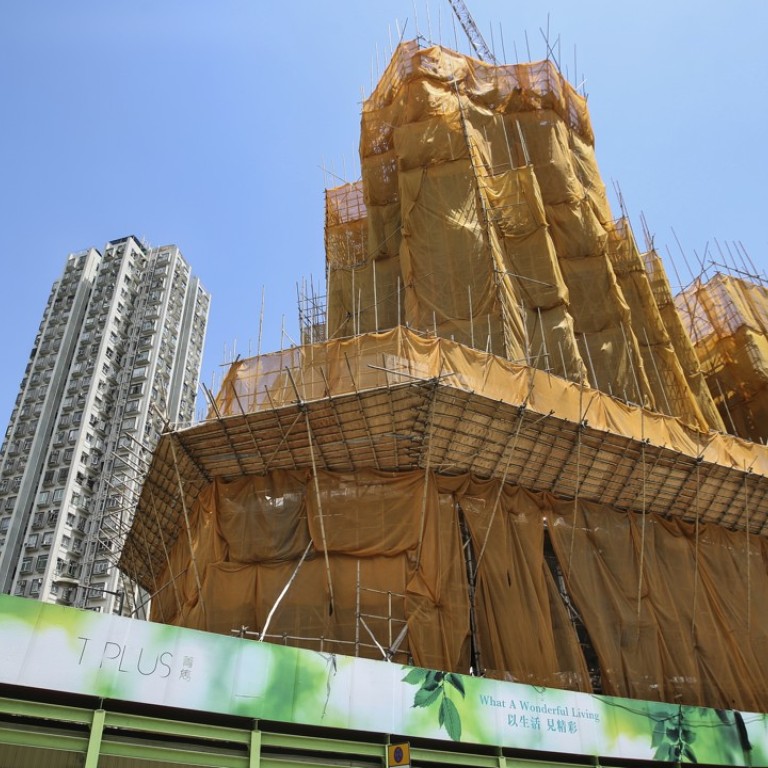
Tuen Mun’s ‘nano flats’, smaller than standard car parking lots, command outsize rents
Tiny apartments in the Tplus development in Tuen Mun likely to fetch a minimum rental of HK$4,000 per month, property agents say
Tiny flats in one of Hong Kong’s newest developments are set to fetch rents well above market rates, raising concerns that low income groups left off the property ladder haven’t really benefited from the trend of building smaller apartments.
The smallest of Hong Kong’s apartments -- “nano flats” with sizes starting from 128 square feet (12 square meters) -- under construction at TPlus in Tuen Mun are set to be leased for HK$4,000 per month, or HK$31 per sq ft.
These flats are even smaller than a standard 134-sq ft car park space, which rent for HK$1,500 per month, said Cheung Choi-kuen, an executive director at Many Wells Property Agent, a specialist that focuses on Tuen Mun.
The rates are about 19 per cent to 29 per cent higher than market average of HK$24 to HK$26 per sq ft for the area, according to Centaline Property Agency’s data.
“In a sky-high property market like Hong Kong, tenants or buyers with limited budgets only go for smaller lump sum amounts, rather than unit size,” he said. “There is always a market for tiny flats.”
Hong Kong home rents for units smaller than 430 sq ft saw a year-on-year increase of 10 per cent in May, while the rise was a more modest 3 per cent for flats from 1,076 sq ft to 1,721 sq ft, according to data from the Rating & Valuation Department.
Veteran property investor Tang Shing-bor, known for his extensive holdings of retail shops, purchased the TPlus development for HK$1.2 billion (US$153 million) on Wednesday from Asia Allied Infrastructure Holdings, formerly known as Chun Wo Property Development.
Tang Yiu-sing, the son of Tang Shing-bor, said he planned to retain the project for leasing rather than sale.
Units at TPlus, the largest of which measure 250 sq ft, are due for completion in September 2018.
“The smallest unit can achieve HK$4,000 per month at TPlus” in rental, Tang said. “Some people will need short term accommodation, or whatever.”
He said the monthly rent for a sub-divided flat was about HK$6,000 in nearby urban areas.
However, Cheung believes the rental projection of HK$4,000 per month for the smallest units at TPlus is conservative.
“With this asking rent, the project will attract potential tenants not only in Tuen Mun but also from other parts of Hong Kong. Students, young couples and singles will go for it,” he said.
Currently, the lowest asking rents for one-bedroom units in the area, even in buildings older than 10 years, are at least HK$9,000 per month.
Lai Kin-kwok, a convenor of Platform of Concerning Subdivided Flats in Hong Kong, said Hong Kong resident have no choice but to accept the rapidly shrinking living space.
“Obviously, it indicates Hong Kong rents have soared to beyond general public affordability. Lower income groups will see their rental bills continuing to increase. They have no choice but settle for much smaller flats,” he said. He noted that tenants living in subdivided flats earn a monthly salary of about HK$10,000.
Between 2003 to 2016, nominal wages increased by 58 per cent but residential rents surged 129 per cent, according to the Rental & Nominal Wage Index complied by Our Hong Kong Foundation, a think tank launched by the former chief executive Tung Chee-hwa in 2014.

